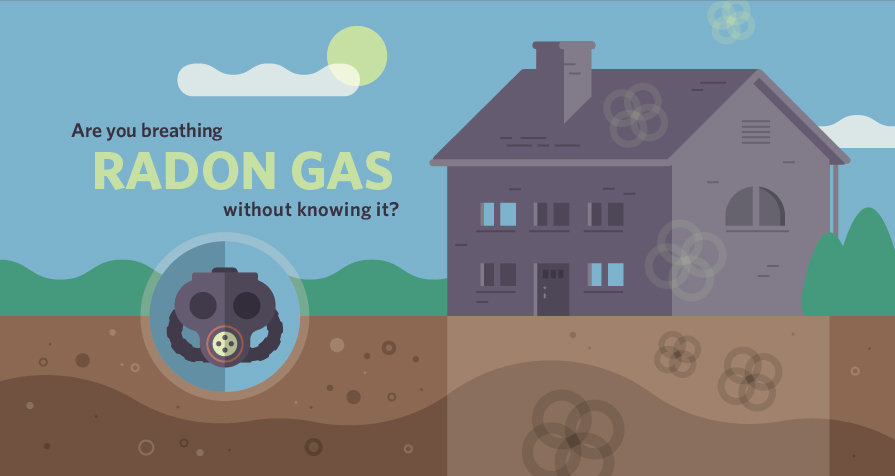Frequently Asked Questions about Radon Gas
What is Radon Gas?
Radon gas is a radioactive gas produced from decaying uranium in the igneous rock below the earth’s surface. Exposure to radon gas over an extended period of time has been linked to some forms of lung cancer. In fact, the Surgeon General and Environmental Protection Agency (EPA) have linked over 20,000 cases of lung cancer to elevated radon levels.
Should I be concerned?
Radon is present in all U.S. regions, but areas that have igneous rock layers are especially prone to elevated radon levels. You might see elevated radon levels in homes with basements and wells for water supply.
How do I know if the radon levels in my house are elevated?
Radon test kits can be purchased at a reasonable price through an HVAC contractor or on the Internet. There are short-term and long-term kits available.
Short-term kits typically run through a 30 to 90 day period. The sample is then delivered to the lab for analysis, and the results are sent back to the consumer.
Long-term kits last for an entire year. Long-term testing is often preferred because radon levels can shift as the seasons change whereas a short-term test may not capture the most accurate results.
What do I do if my radon levels are elevated?
Call your local HVAC contractor to have an analysis completed and install a radon mitigation system. These systems are simple, inexpensive and easy to have installed.



